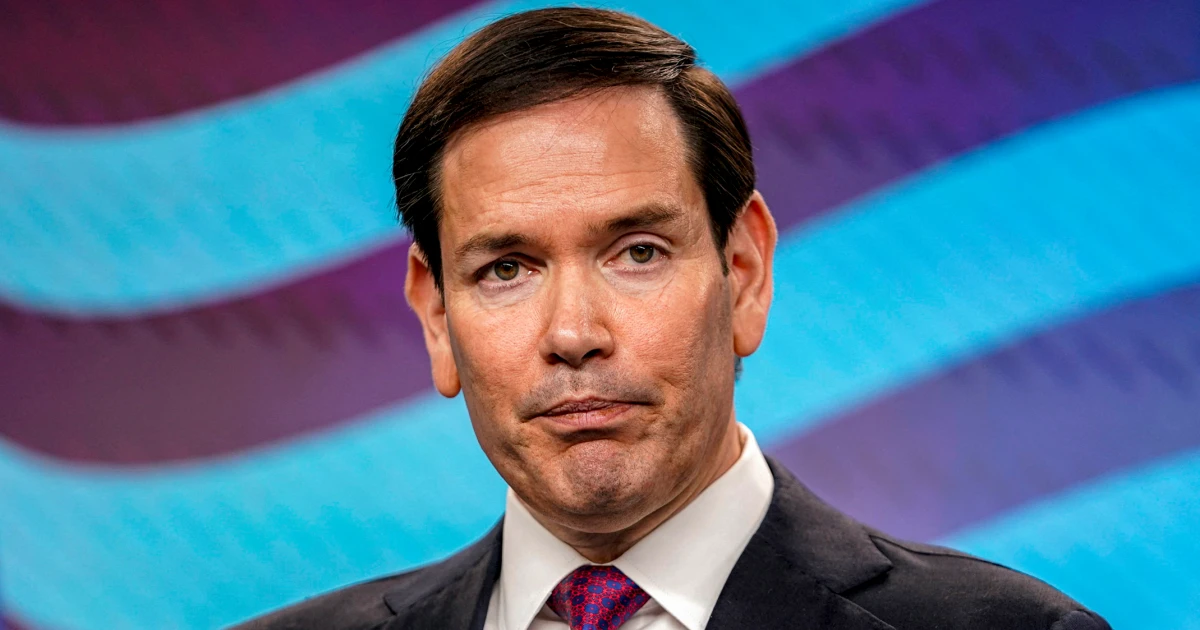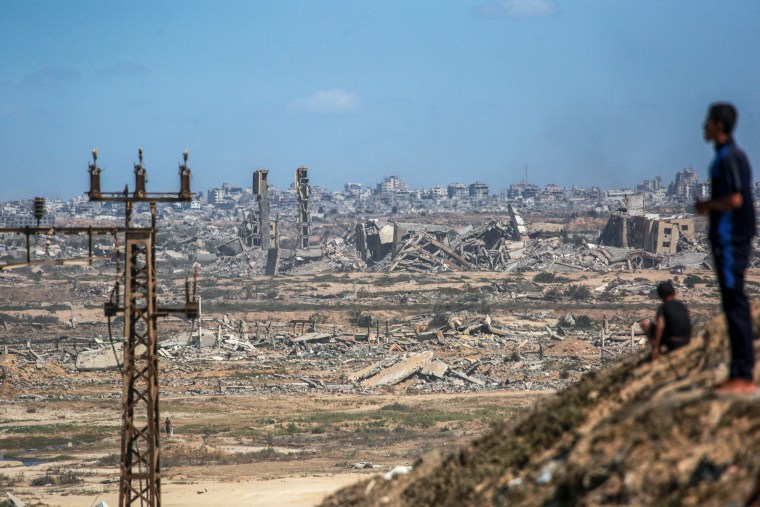Rubio says ongoing Gaza peace negotiations are ‘not yet’ the end of the war

WASHINGTON — Secretary of State Marco Rubio said Sunday on NBC News’ “Meet the Press” that ongoing negotiations between Hamas and Israel are not yet the end of the war and that setting up a group to govern Gaza would take “some time,” but emphasized that there was a plan to do so.
It comes as Israel and Hamas appear to be inching closer to implementing a 20-point peace plan proposed by President Donald Trump.
“Everyone has agreed, including Israel, that eventually, at some point here as this process plays out, Gaza will be governed by a Palestinian technocratic group that’s not Hamas, that are not terrorists, with the help and the assistance and the guidance of an international consortium like the board of peace,” Rubio said, echoing the language of the proposed peace plan.
At the same time, Rubio said, “You can’t set up a governance structure in Gaza that’s not Hamas in three days.”
“I mean, it takes some time,” he said.
The peace plan stipulates that Gaza would “be governed under the temporary transitional governance of a technocratic, apolitical Palestinian committee.” The plan also provides that Hamas, which currently governs Gaza, would not have any role in governing in the future.
Israeli Prime Minister Benjamin Netanyahu publicly backed the peace plan, which includes the release of all Israeli hostages by Hamas, during a visit to the White House last week.
Hamas has expressed a willingness to release all hostages, alive or dead, and plans to send a team on Sunday to Cairo, where more in-depth negotiations are slated to begin on Monday. Trump administration special envoy Steve Witkoff and the president’s son-in-law Jared Kushner plan to attend on behalf of the U.S.
Asked by moderator Kristen Welker whether the peace negotiations mark the end of the war in Gaza, Rubio said “not yet.”
“There’s some work that remains to be done,” he said, pointing to ongoing meetings to determine the logistics of implementing a peace plan.
The parties now need to determine, first, how hostages are released, and, second, how to create new Palestinian leadership.

“How do you create this Palestinian technocratic leadership that’s not Hamas, that’s not terrorists, and with the help of the international community?” Rubio said, laying out ongoing issues. “How do you disarm any sort of terrorist groups that are going to be building tunnels and conducting attacks against Israel?”
There are ongoing talks to determine logistically how hostages could be released, he said.
“You have to make sure the Red Cross can get there, what time they’re going to be there, where they’re going to be,” Rubio said. “All that has to be worked through.”
Asked whether hostages could be released as early as this week, Rubio said, “We want it to be as soon as possible.”
Trump has said that Israel agreed to withdraw to an initial line cutting through Gaza in order for the hostage deal to move forward. The initial withdrawal line, marked by a yellow line in a graphic posted by Trump, would withdraw the Israeli military to the outskirts of several major cities.
Before Israel withdraws further, Rubio noted that the parties had to determine who would take control of the territory.
“When we ask Israel, ‘OK, you’re at the yellow line, now everything behind it you have to turn it over,’ You have to have somebody to turn it over to,” Rubio said. “So, I mean, let’s be realistic here. You can’t just set up a sort of new governance structure inside of Gaza in 72 hours.”
[title_words_as_hashtags



